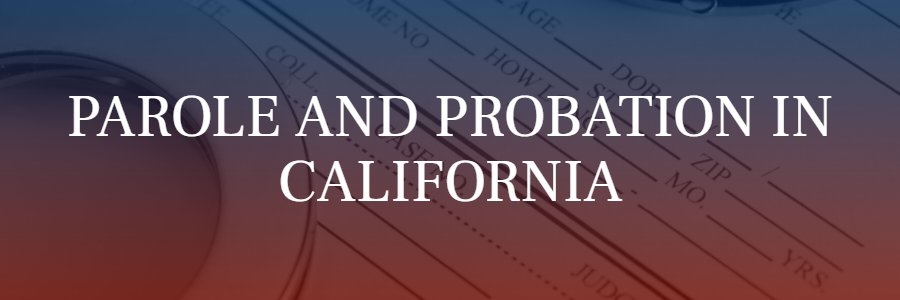What is the Difference Between Parole and Probation?
Posted in California Law,Criminal Defense,General FAQ'S on June 17, 2021
There is often confusion about the difference between parole and probation, particularly because these two words are thrown around together so often. We do want to stress that parole and probation are different, and it is critically important for any person facing either of these to understand what will happen moving forward. Here, we want to briefly define how California law defines parole and probation, analyze the differences between the two, and discuss the consequences for violating either.
What does California law define as parole?
Parole occurs when a person already in jail or prison is granted conditional freedom. The prisoner will become a parolee, will be released from incarceration, and will have to uphold a series of responsibilities (called conditions).
Not everyone who has committed a crime will be eligible for parole, but many convictions do become eligible after a certain amount of time. Parole is designed to give a person an opportunity to transition back into society before the end of their incarceration sentence.
The various types of conditions that could apply for a parolee could include maintaining employment and a residence, avoiding any criminal activity and contact with victims, refraining from drug and alcohol use, attending mandatory classes, and more. Violation of these conditions could result in a person being returned to prison for the remainder of their sentence.
Definition of probation
According to the Public Policy Institute of California, probation is the most widely used form of correctional supervision in the state. Judges in California can sentence convicted offenders supervision on probation as an alternative to jail or prison. There are two forms of probation in California – informal and formal.
- When a person is on informal probation, it will not be formally supervised by a probation officer, but the parolee will have to report to the court directly if they change addresses, to submit proof of probation requirements, or if they are arrested.
- When a person is on formal probation, they are supposed to directly supervised by a probation officer. The probationer will meet with their officer anywhere ranging from once a week to once a month, and the officer will typically visit high-risk probationers frequently.
As with parole, there are various conditions that probationers have to follow, including staying out of trouble and avoiding drugs and alcohol.

Differences between parole and probation
There are differences between parole and probation that you should be aware of. First, parole is usually granted to those who have already been incarcerated for a portion of their sentence. In most situations, probation is granted to a person in lieu of serving time in jail or prison. However, there are times when a person will be ordered to serve on probation after their sentence in jail or prison is completed.
Parole is supervised release from prison that will be administered by state officials. Probation will be the responsibility of the county where the person was sentenced.
Consequences for their violation
There may be various consequences attached to violating parole or probation. If a person violates the terms or conditions of their parole, the court has various options, including re-arresting a person and charging them with a new crime, revoking the parole and returning the person to prison for the remainder of their sentence, increasing the term of the parole, and fines.
If a person violates probation, they can expect many of the same possible consequences. Since probation is typically issued in lieu of jail or prison time, a person could be arrested and sent to jail or prison to carry out their original sentence. Additionally, the terms of probation could be extended, and the conditions could be strengthened. Contact a Riverside defense lawyer if you have violated your parole or probation and need experienced representation for your case.

